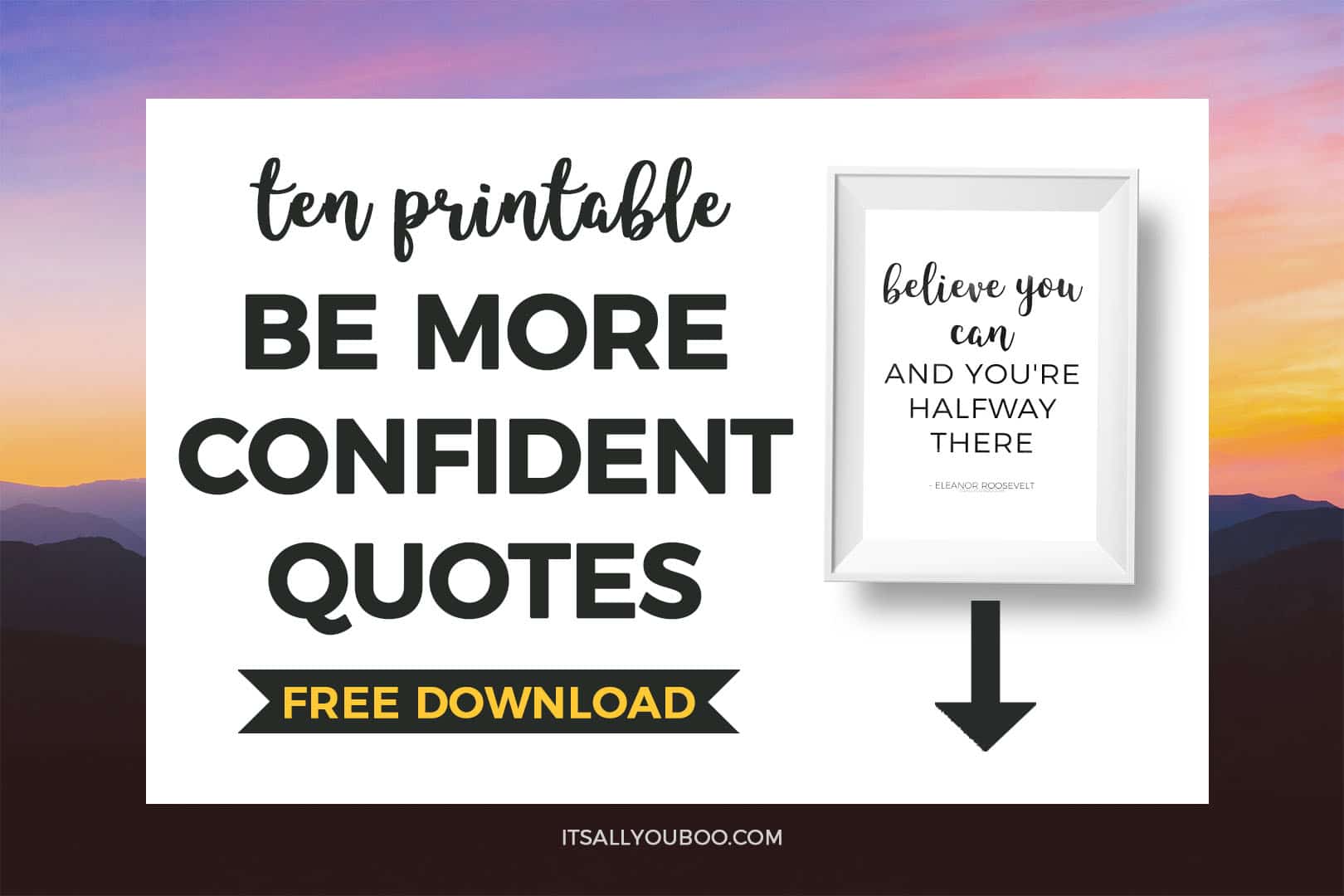Do you wish you were more confident in yourself? Curious about how do you get a more confident mindset?
I think it goes without saying that we all want to feel confident. All the time. Confident people just have something going for themselves and everyone around them can see it.
But, I don’t think you’ll be surprised to learn that, feeling confident “all the time,” is not possible. Even if we really wish we could be that confident person no matter what we face.
That’s because of negative bias, where we humans are wired to pay more attention to our own negative thoughts, negative comments from others, and generally negative news, than we are to their positive counterparts.
And while this may not seem fair, it does have an evolutionary reason. You see, back in the days when enough food, adequate shelter, and a safe tribe meant the difference between life and death, it was pretty important to be aware of threats on all sides.
Evolutionarily, we have not moved on from those times (in the universal scheme of things, it wasn’t that long ago). So, focusing on the negative is a given. But we know that mountain lines aren’t chasing us and the danger is not usually lurking around every corner.
Yet our brains go on prioritizing the negative. So how do you get a confident mindset? Is it even possible? Read on to learn how to build self-confidence.

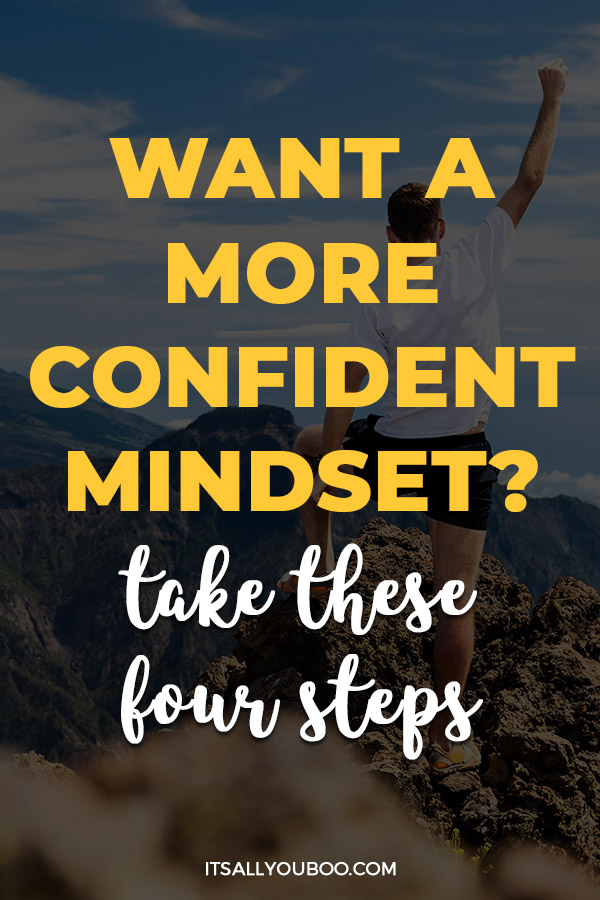
THIS POST MAY CONTAIN AFFILIATE LINKS.
IF YOU MAKE A PURCHASE FROM THESE LINKS, I MAY EARN A SMALL COMMISSION.
CLICK HERE FOR MY FULL DISCLAIMER STATEMENT.
How Do You Get A Confident Mindset?
Is a confident mindset even possible? I mean, I just said up there that feeling confident “all the time” isn’t possible. And that our brains focus on the negative.
So, if you’re best described as:
- Constantly second-guessing yourself
- Missing out on opportunities because of what other people might think
- Not living your life to the fullest because you don’t feel “ready”
I’ve got your back.
When I turned fifty, I had no idea that a confident mindset even existed. Heck, I didn’t really know what a mindset was!
Luckily, I love to read and study, as well as theoretically improve myself, so off to the personal growth books I went!
I started reading everything I could get my hands on about confidence. I turned 50 back in 2006, so the Internet was in full, albeit infant, swing.
Amazon.com was definitely my friend! I’ve rarely met a book or podcast I didn’t glean something from. It’s like life coaching at your fingertips.
Around this same time, the whole “growth mindset” idea was gaining steam as well. Carol Dweck’s Mindset was published at the end of 2007, and even back in the late 90s I had read articles and books from the likes of Tony Robbins about neuroscience, neuroplasticity, and how what you tell yourself matters to your confidence and success.
👉🏽 RELATED POST: Growth Mindset vs Fixed Mindset
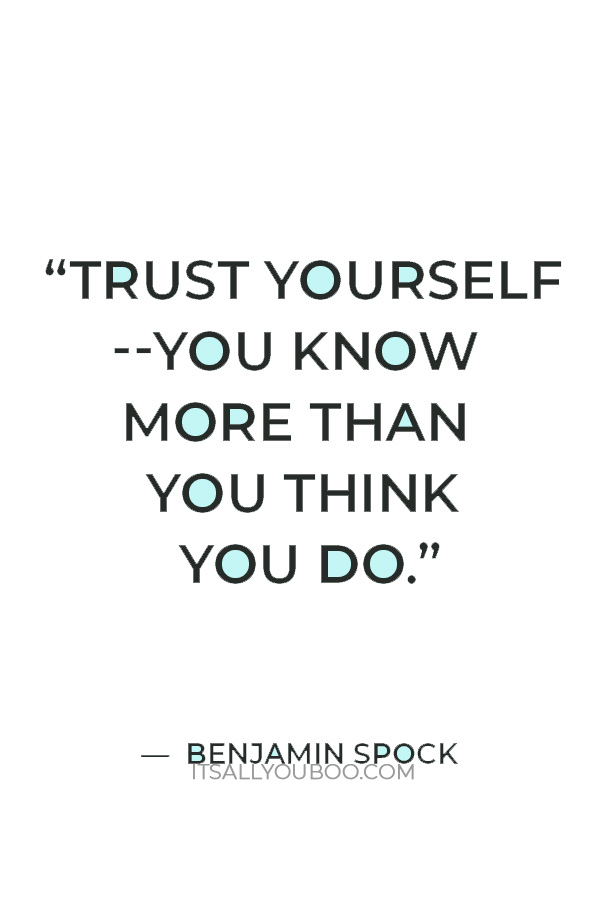
What IS A Confident Mindset?
Confidence
Confidence is most often thought of as a feeling. As in, “I feel confident I can get this paper done by next Friday,” or, “I feel confident I can run around the track in 5 minutes or less.”
In other words, a feeling of certainty.
But what if you don’t feel confident? What if you almost never do? Are you destined to have low self-esteem? To never feel sure about anything?
No, of course not. No doubt even if you’re like me, the (former) queen of low self-confidence, you’ll feel confident now and then.
For example, are you confident you can tie a pair of shoes? Take a shower? Etc. My guess is yes.
But what if I told you that the Latin root of the word confidence actually means “with trust”? When you’re trusting that something will work out, you may not necessarily be certain of the outcome, but you act with trust.
That little word, ACT, is the key. Confidence isn’t a feeling; it’s an action born from trust.
You may be boldly going forward with something you want, or even need to do, with trust, but still with some fear and anxiety.
Mindset
What do I mean by the word, “mindset”? A mindset is the mental lens with which you see the world.
You may be an open and giving person, or you may hold things close to the vest, afraid to open yourself up lest you be disappointed.
Those two different mindsets will affect how you approach people, as well as new activities and projects.
More than likely you are unaware of your mindset(s). But whether or not you are aware, your mindset is the very foundation of the way you live your life.
👉🏽 RELATED POST: 20 Confidence Building Exercises
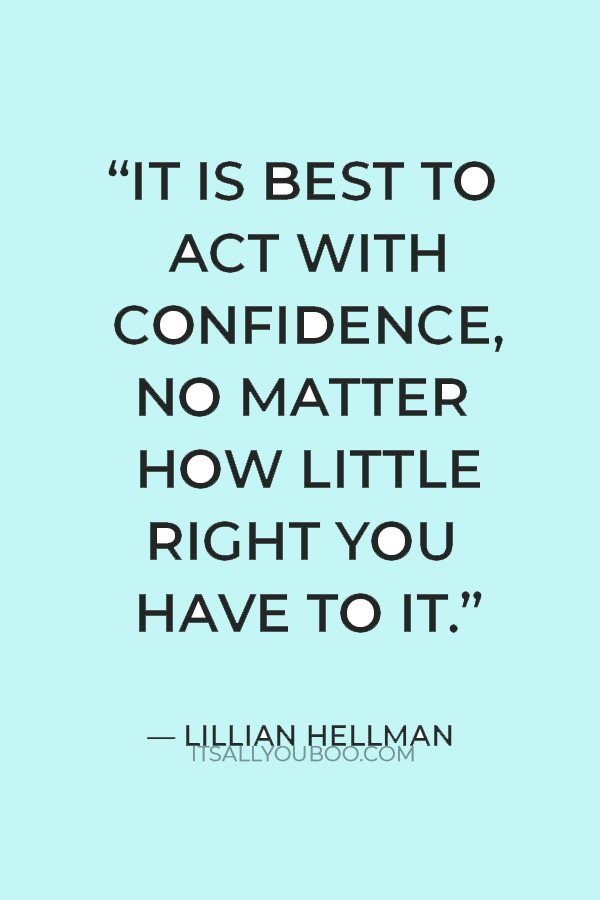
A confident mindset, then, is seeing the world around you through the lens that your actions, and not your feelings, are what can drive you forward in life.
“Your actions, and not your feelings, are what can drive you forward in life.”
Why Do People Lack Confidence?
According to Russ Harris, M.D., in his outstanding book, The Confidence Gap, there are five reasons people lack confidence:
- Excessive expectations
- Harsh self-judgment
- Preoccupation with fear
- Lack of experience
- Lack of skill
The first one, excessive expectations, is better known as perfectionism. You’re probably very aware of this excuse for never finishing anything.
Perfectionism, like negative thinking, is a normal human mind thing, as we humans are never satisfied for long. No matter what we accomplish or acquire, it seems our natural inclination is to always want more!
Harsh self-judgment is your self-critic taking charge, telling you you’re not good enough, you don’t have what it takes, etc. This can be exacerbated by those you surround yourself with, especially if they are negative.
This is also known as “imposter syndrome.” It’s also the result of (yes, yet again) the natural human tendency to focus on the negative, to judge and criticize, and to replay painful memories more than we do the good ones!
And then there’s fear. This has always been my biggest bug-a-boo. I’m not sure where this started, or why, but my first recollection of fear of failure or being harshly judged came when I was still in elementary school.
So it’s been around for a very long time! And it’s not fear itself that creates the problems, it’s dwelling on the fear, letting it take over virtually everything else in your mind.
The final two, lack of experience and lack of skill are of course common with every new endeavor. It’s normal and natural to lack confidence when you’ve never done something.
But if you let this lack of experience or skill stop you from ever starting anything new, can you see why this may become a problem?
👉🏽 RELATED POST: 17 Self-Confidence Journal Prompts
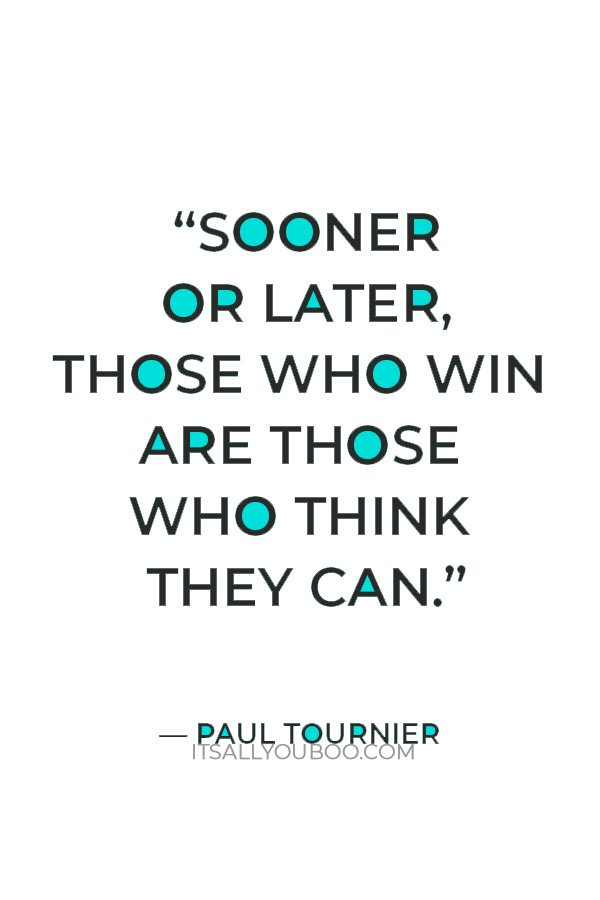
How To Be Confident In Yourself
So where does building confidence begin? Let’s take it step by step.
Developing a confident mindset consists of four steps:
- Set a goal
- Take a small step
- Cheer yourself on
- Feel more confident
But before the goal-setting and small-step-taking, you need Russ Harris’s 4-step “Confidence Cycle”:
- Practice the skills
- Apply them effectively
- Assess the results
- Modify as needed
If, as in the above example, you want to become a confident public speaker, you need to practice giving speeches! It’s practice that changes your confidence levels.
This is a big problem for a lot of people because they think they can’t start to practice because they don’t feel comfortable! Think of doing sports, for example, you can feel like your body isn’t strong enough, but in reality, it’s by doing that you get stronger.
Talk about a Catch-22 situation! You’ll never feel comfortable until you practice (a lot), but won’t practice until you feel comfortable?? Sounds like a recipe for never, ever becoming a confident public speaker.
#1. Practice The Skills and Set A Goal
Now, fortunately (for me and for you), we don’t need to start by setting out in front of 10,000 people at Madison Square Garden in order to practice giving speeches!
You can write a speech and practice it first by yourself, then perhaps in front of a family member, and then maybe a group of friends.
You can practice it until you know it inside and out. Then record yourself making the speech, play it back to yourself and note any sort of verbal or physical tics you exhibit and work on eliminating those.
(The above are applying the skills effectively).
Step-by-little step! This is how the two four-step methods work together.
👉🏽 RELATED POST: 7 Tips for Improving Your Self-Confidence
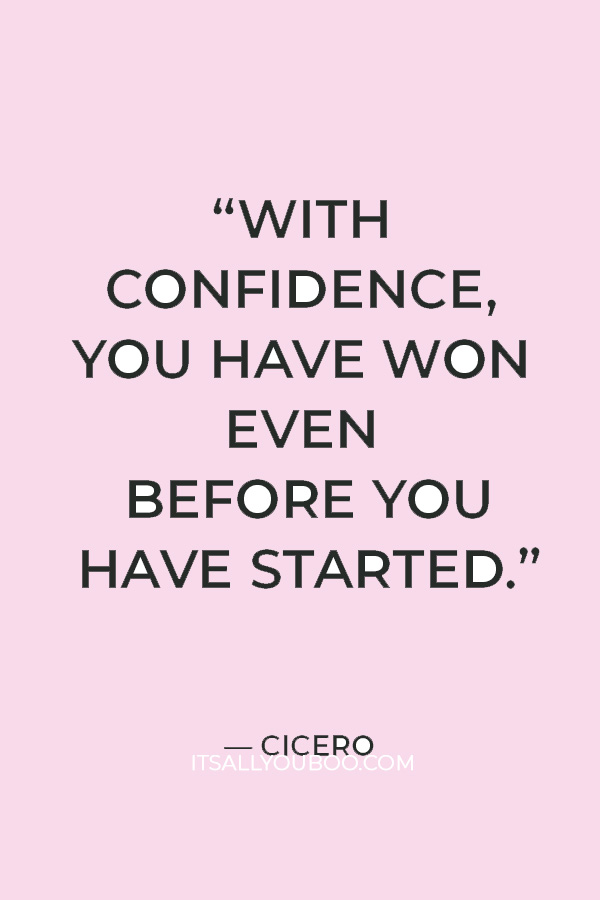
First, you decide on the skill you need to develop for whatever you want to get good at. And then you set a goal. Perhaps to make a certain short speech at the next business meeting, church group, PTA, or what have you.
How to apply this to (literally) any other skill? How about playing the piano?
- Have access to a keyboard
- Acquire some starter lessons
- Practice, practice, practice!
Making small talk on first dates?
- Learn good open-ended questions
- Focus on weather, sports, shows & movies, location, food, hobbies, etc. (Steer clear of politics, religion & health).
- Listen and respond to the other person
- Practice, practice practice (alone at first, then with a trusted friend)
Cooking a meal for friends?
- Decide on a simple recipe
- Make the recipe for yourself, then family
- Practice the timing of different courses
Lather, rinse, and repeat!
#2. Apply The Skills Effectively
This is the part where you also make a small goal. Once you’ve practiced the skill by yourself and know the piano piece, small talk ingredients, or recipe through and through, you test it in a real-life situation.
Nothing dramatic here. Small steps, remember? You’ll practice the piano piece in front of a trusted family member or friend. Take a step farther, and see the image of yourself playing beautifully!
You’ll make small talk with someone you know and trust well. Ditto with the recipe.
Doing these things with a trusted friend, one who really has your best interests at heart, is key because you don’t want feelings of fear and insecurity to cloud your thinking.
You want to focus on the task at hand and not be distracted worrying about what (unknown) people will think.
👉🏽 RELATED POST: This is How To Trust Your Intuition
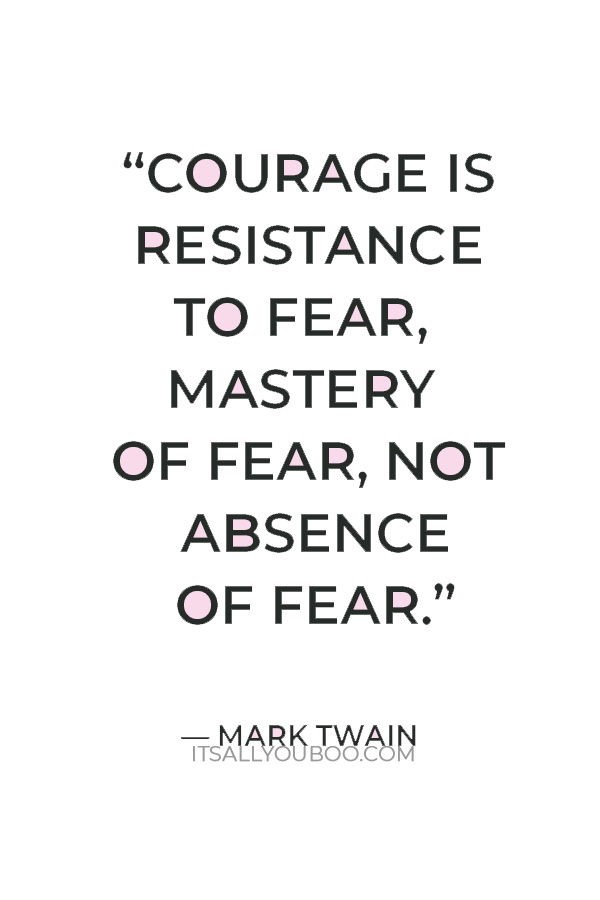
#3. Assess The Results
First things first, though. Cheer and congratulate yourself for doing the thing! Just taking action is such a big accomplishment, especially if you’re usually frozen with fear.
After your cheer session, take some time to reflect on the results of what you just did. You made a small goal. How did it go? What worked? What could use some improvement?
For example, I want to get better at giving live presentations in my group members. I started by making a few short impromptu presentations recording myself with no one else around. Yay me!
And believe me, this was tough! My brain kept telling me it was stupid, and I kept putting it off by reading the news and scrolling social media! But I finally bucked up and did it for less than 2 minutes. I took a deep breath and then watched it (which was even more difficult than making the recording).
I actually watched it over several times, and by about the 6th time I didn’t absolutely loathe my own voice. Does that happen to you when you hear your own voice from not inside your head?
Anyway, I realized a few things, such as I wasn’t actually looking into the camera, and I made a weird gesture a few times.
This conveniently leads to the next step:
#4. Modify As Needed
By now you should be feeling a bit more confident. If you’ve made it through the first 3 steps, you’ve come a long way. You know you can do it!
Little by little, you’re developing a confident mindset.
Once I realized the things I wanted to improve, instead of telling myself how stupid I am (which was tempting), I thought about how I could improve those two things, wrote down my ideas, and tried again the next day.
I continued to do the things I thought I had done pretty well, and worked on improving one little thing at a time with the ones that needed improvement.
👉🏽 RELATED POST: How To Get Out Of Your Comfort Zone
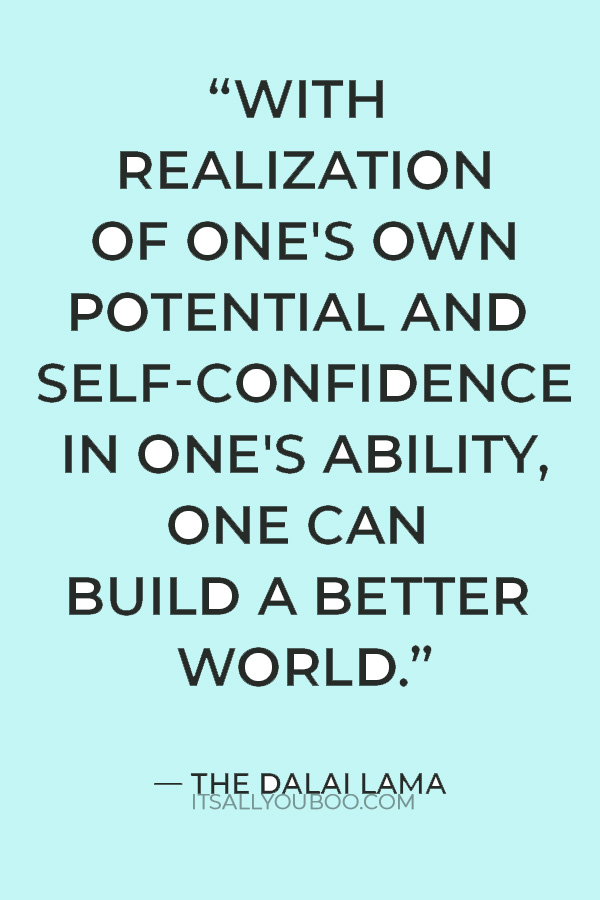
Then of course I watched again, rinse and repeat. Once I was satisfied enough (resist the urge to take this step too far!), I let my husband watch (I was cringing the whole time).
You could ask a trusted family member or friend to do this for you, and ask them to give you honest feedback.
The type of feedback you want and need is both honest and kind. In other words, you probably don’t want to use your worst critic, at least not at this stage of the game.
emember, you’re moving from a mindset that won’t do the challenging things without feeling confident, to a person with a confident mindset that knows (deep down), that the actions of confidence come before the feelings of confidence!
This Is Nothing New
If all of the above sounds somehow daunting, try to remember that it’s really (really!) nothing new. You’ve done new things; things you previously had no idea how to do, before.
Perhaps you don’t remember a time when you couldn’t tie your shoes, or ride a bike, but trust me, they existed.
Sure, those things probably happened when you were a kid, but what about something like driving a car? Or learning to drive a manual transmission car? I learned that when I was 25.
This means I’ve been driving a stick for 40 years now, and that shifter feels like an extension of my hand when I drive.
👉🏽 RELATED POST: How to Overcome Your Fear of Failure and Rejection
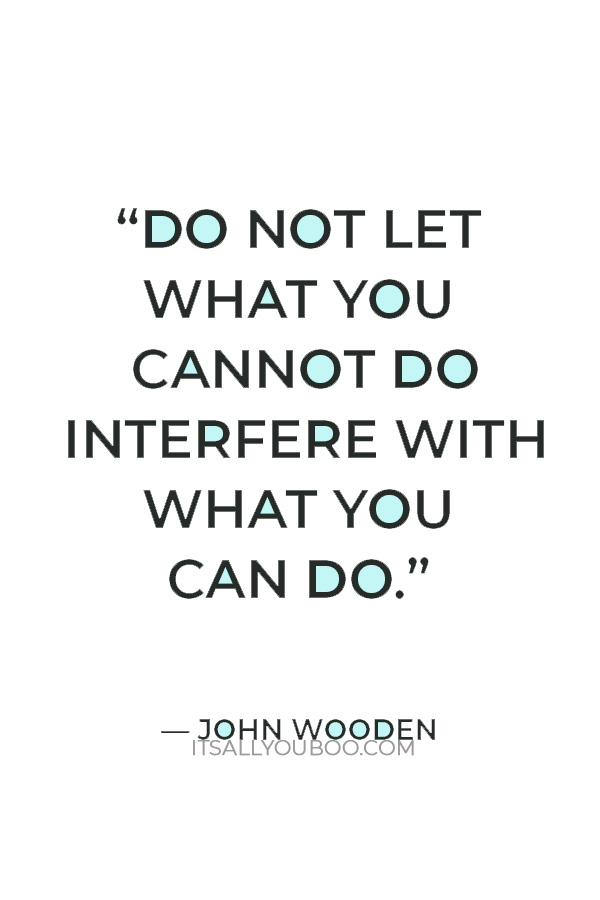
For every single one of these things you’ve had to practice, practice, and practice some more in order to master them.
How many more can you think of?
- Eating with a fork
- Reading books
- Writing
- Making a piece of toast
- Putting on socks and shoes
- Using Spotify in the car
- Typing
There are likely hundreds of things just like these, and many that are even more complicated, like playing an instrument or sport, or sewing.
Get Your Self-Confidence Quotes
Ready to develop a confident mindset? Get your 10 FREE printable self-confidence quotes!
They’re perfect for your office, home bedroom, or wherever you need to find inspiration daily. Each design is black and white and features brushed ink letter detailing.
This download comes with 10 high-resolution graphics ready to be printed and posted.
Remind yourself of all these things and realize that you have conquered all of them.
When your brain tries to feed you a story of defeat, drama, and delay, tell it, “Hey, brain, thanks for the walk down memory lane, but I’m busy learning how to skydive this weekend, so I’m gonna have to take a raincheck.”
And then go master that skydiving!

Do you have a confident mindset?

More About Guest Contributor
Kathy encourages women over 50 to be their very best and most fit selves, even when they think it’s too late, or they’ve tried everything. She writes about fitness, confidence, and mindset at phasetwofitness.com.
Last Updated on February 12, 2025






